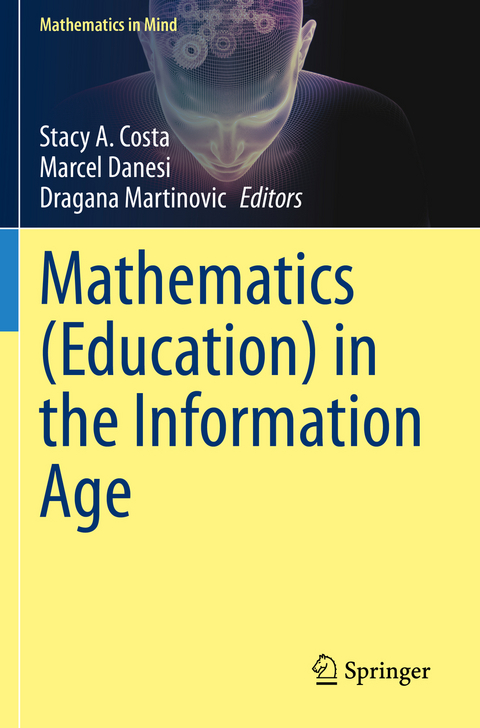
Mathematics (Education) in the Information Age
Springer International Publishing (Verlag)
978-3-030-59179-3 (ISBN)
Given the interdisciplinary nature of the chapters, this will be of interest to all kinds of readers, from mathematicians themselves working increasingly with computer scientists, to cognitive scientists who carry out research on mathematics cognition and teachers of mathematics in a classroom.
1. The Information Age, Mathematics, and Mathematics Education (S. Costa, M. Danesi, D. Martinovic).- 2. An Unsupervised Approach to User Characterization in Online Learning and Social Platforms (D. Vilenchik).- 3. Argumentation is Elementary: The Case for Teaching Argumentation in Elementary Mathematics Classrooms (K. Marks Krpan, G. Shambu).- 4. Subverting Stereotypes: Visual Rhetoric in the #SheCanSTEM Campaign (D. Danuser).- 5, Graphical Literacy, Graphicacy, and STEM Subjects (S. Costa).- 6. Mathematics, Statistics, and Sports (F. Nuessel).- 7. Travels with Epsilon in Sign and Space (L.H. Kauffman).- 8. Experimental Mathematics: Overview and Pedagogical Implications (M. Danesi).- 9. Why the Basics Still Matter: The Cost of Using a Machine to Do Mathematics (S. Gollish).- 10. Syntonic Appropriation for Growth in Mathematical Understanding: An Argument for Curated Robotics Experiences (K. Francis, S. Khan).- 11. Why Do Mathematicians Need Diagrams? Peirce's Existential Graphs and the Idea of Immanent Visuality (V. Kiryushenko).- 12. Procedural Steps, Conceptual Steps, and Critical Discernments: A Necessary Evolution of School Mathematics in the Information Age (M. Metz, B. Davis).- 13. If One Can Read and Write Then One Can Also Do Mathematics (R.K. Logan).
"The book is a perfect blend of academic, social, technological and pedagogical discussions. Each chapter ends with references for further reading. ... the book is an excellent addition to the existing mathematics education literature. The very first reading of the book makes one admire both the content of the book and the way it is structured and edited. The lucid style of writing adopted by the authors makes the book readily accessible." (Firdous Ahmad Mala, Educational Studies in Mathematics, Vol. 112 (1), 2023)
"Each chapter provides a wealth of information with deep insight on how mathematics education and 21st-century teaching of mathematics to our students is quite different than even 10-20 years ago. ... I highly recommend this book to anyone who wants to gain a robust and well-rounded experience in teaching the next generation in the Information Age." (Peter Olszewski, MAA Reviews, August 13, 2021)
| Erscheinungsdatum | 14.12.2021 |
|---|---|
| Reihe/Serie | Mathematics in Mind |
| Zusatzinfo | X, 226 p. 71 illus., 8 illus. in color. |
| Verlagsort | Cham |
| Sprache | englisch |
| Maße | 155 x 235 mm |
| Gewicht | 367 g |
| Themenwelt | Geisteswissenschaften ► Psychologie ► Allgemeine Psychologie |
| Mathematik / Informatik ► Mathematik ► Angewandte Mathematik | |
| Sozialwissenschaften ► Pädagogik ► Bildungstheorie | |
| Schlagworte | Artificial Intelligence • cognitive science • graphical literacy • immanent visuality • philosophy of mathematics • psychology of mathematics |
| ISBN-10 | 3-030-59179-4 / 3030591794 |
| ISBN-13 | 978-3-030-59179-3 / 9783030591793 |
| Zustand | Neuware |
| Haben Sie eine Frage zum Produkt? |
aus dem Bereich


